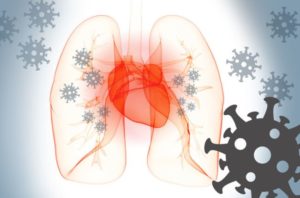
A healthy heart is always essential but especially through the pandemic. People with heart disease and other medical conditions appear to be a higher risk for more serve symptoms or complications if they contract COVID-19.
People with serious heart conditions, Type 2 diabetes, cancer and obesity are among those at increased risk of serve illness with COVID-19, according to the Centers for Disease Control and Prevention. Those with high blood pressure, immune system deficiencies and lung diseases and stroke survivors also might be at increased risk.
Heart patients are more likely to have serve symptoms and less likely to be asymptomatic. They can become sick very quickly. Some patients with COVID-19 experience racing heartbeats, abnormal heart rhythms, congestion and shortness of breath. Complications can include pneumonia and blood clotting.
To improve heart health, follow the American Heart Association’s Life’s Simple 7, involving simple changes everyone can make. The seven steps are eating a nutritious diet, staying physically active, losing excess weights, managing blood pressure, controlling cholesterol, reducing blood sugar, and quitting smoking.
Walking can be helpful along with eating more fruits and vegetables and lean meats at home. Trying a new at-home routine of healthy eating and exercise can have many benefits. Structure can be useful if you are mostly at home during the pandemic. Plan for nutritious meals at designated times.
Battle the urge to eat because of stress or boredom by instead having a glass of fruit- infused still or sparkling water or a cup of hot tea or coffee. Remember to avoid sugar- sweetened beverages, which can contribute to weight gain. Another way to avoid mindless eating is to take a quick walk around the block and remind yourself your meal is coming soon.
Manage stress to aid in boosting your overall health by trying activities like yoga and meditation. Stay socially connected. It’s possible to visit with family and friends while taking precautions to guard against spreading illness. Consider an online meetup or a small gathering.
It’s important to take prescribed medications and stay in touch with your regular doctor. Telemedicine appointments are available instead of visiting in person.
For information visit: www.heart.org




